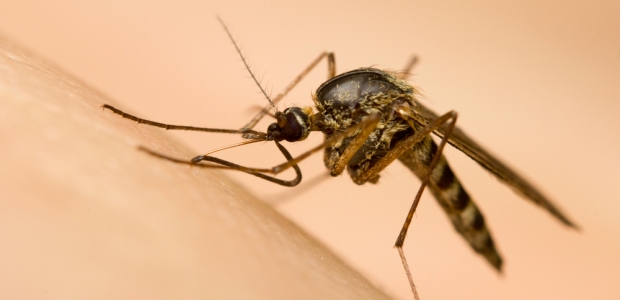
WHO Calls for Greater Emphasis on Malaria Prevention
WHO issued updated "Guidelines for the Treatment of Malaria" last week and said they should help expand access to recommended treatments.
Saying the global health community should urgently address gaps in the prevention, diagnosis, and treatment of malaria, the World Health Organization observed World Malaria Day by announcing a new strategy to reduce its burden 40 percent by 2020.
More than 500,000 people worldwide die of it each year, and at least three-quarters of those deaths involve children under 5. Yet, in 2013, only about one in five African children with malaria received effective treatment for the disease, 15 million pregnant women did not receive a single dose of the recommended preventive drugs, and an estimated 278 million people in Africa still live in households without a single insecticide-treated bednet, according to WHO.
"As we celebrate World Malaria Day on April 25, we must recognize the urgent need to expand prevention measures and quality-assured diagnostic testing and treatment to reduce the human suffering caused by malaria," said Dr. Hiroki Nakatani, WHO's assistant director-general for HIV/AIDS, Tuberculosis, Malaria and Neglected Tropical Diseases.
WHO issued updated "Guidelines for the Treatment of Malaria" last week and said they should help expand access to recommended treatments. WHO also has developed a new global malaria strategy for the 2016-2030 period; it will be reviewed by the World Health Assembly in May 2015. Developed in consultation with endemic countries and partners, the new strategy sets the target of reducing the disease burden 40 percent by 2020 and by at least 90 percent by 2030. It also aims to eliminate the disease in at least 35 new countries by 2030.
"We must take the malaria fight to the next level. Moving towards elimination will require high-level political commitment and robust financing, including substantial new investments in disease surveillance, health systems strengthening and research," said Dr. Pedro Alonso, director of the WHO Global Malaria Programme. "In addition, we urgently need new tools to tackle emerging drug and insecticide resistance, as well as innovative approaches that will accelerate progress."
Malaria is transmitted among humans by female mosquitoes of the genus Anopheles.